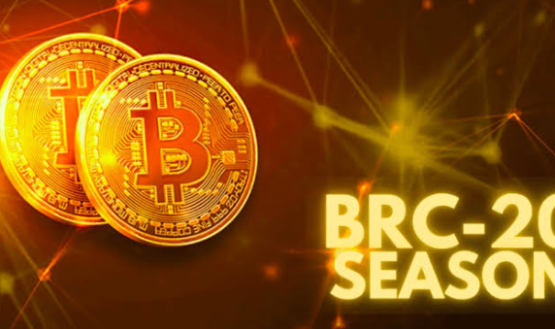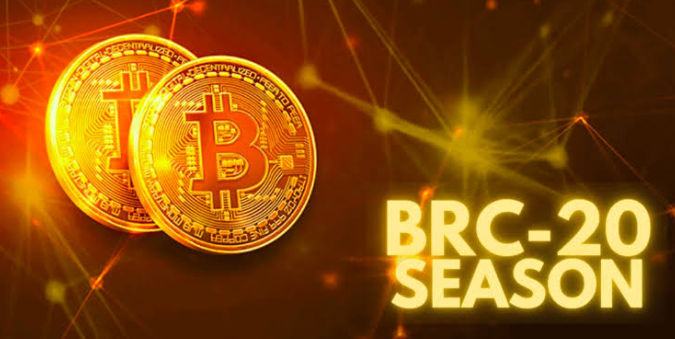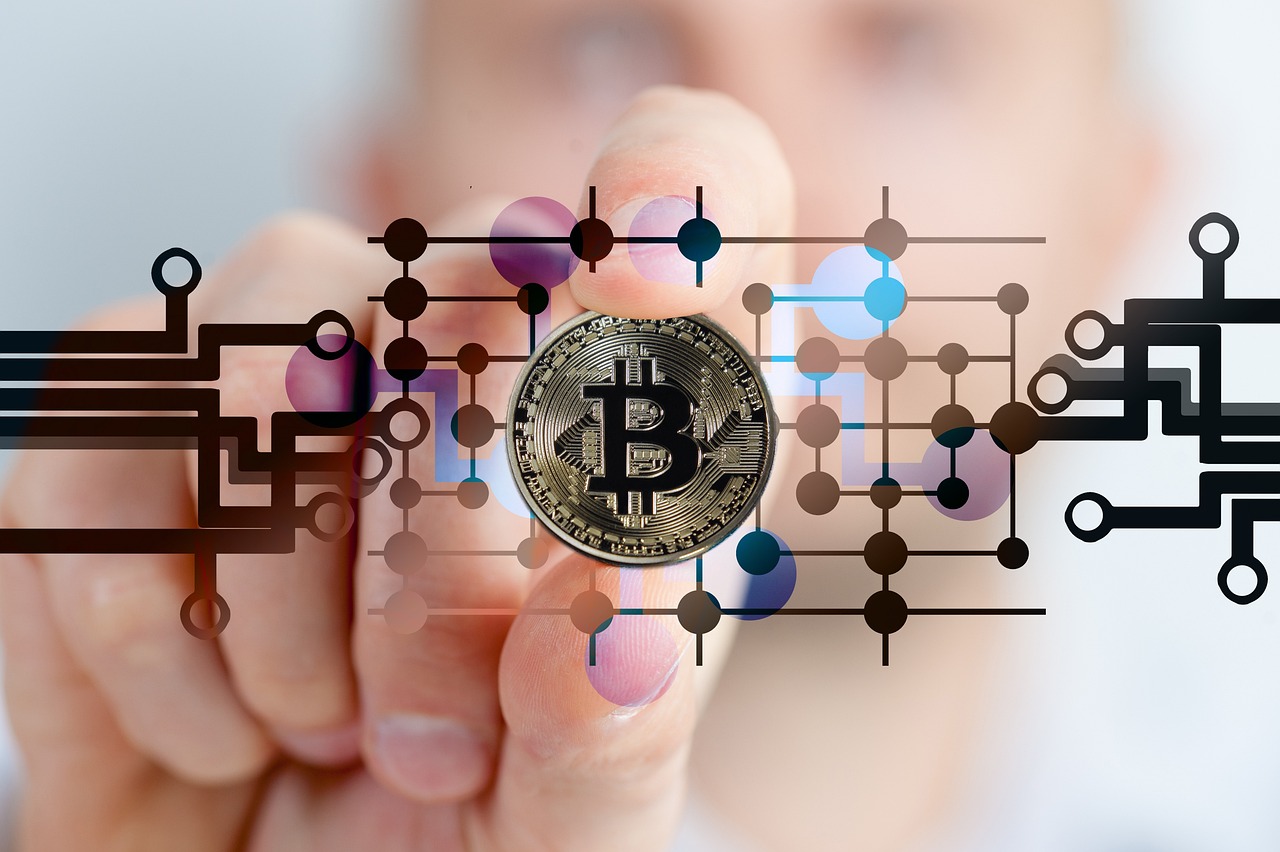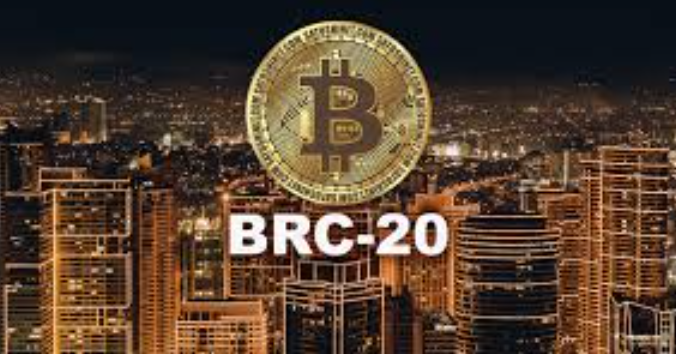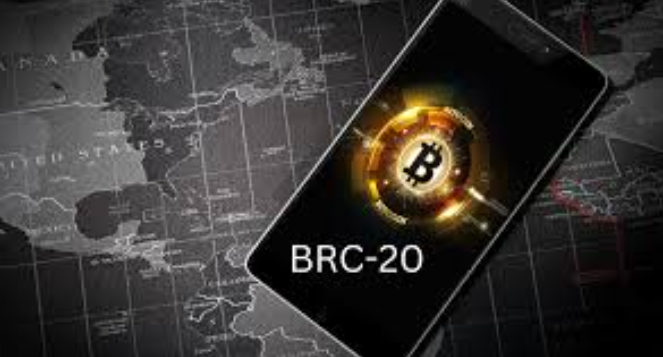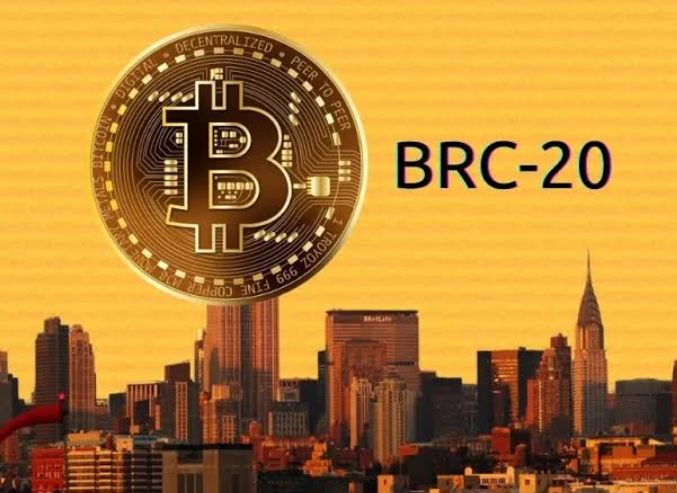Every blockchain that supports smart contracts has a token standard by which it operates. These standards are rules and protocols that guide the creation, behavior, usage, function, and interoperability of crypto assets on a blockchain.
For instance, any asset that is hosted on Ethereum is called an ERC-20 token, while the one on Tron is called a TRC-20 token depicting the blockchain and rules by which they operate.
Prior to 2023, some of the popular token standards were ERC-20, ERC-721, ERC-777, ERC-1155, BEP-20, TRC-20, and SPL. BRC-20 joined the list after it was launched in March by Domo, an anonymous blockchain analyst. As the token standard continues to grow in popularity, we cover everything you need to know about it, including its pros and cons.
What Are BRC-20 Tokens?
BRC-20 is specifically designed for the Bitcoin network. As a token standard, it facilitates the minting and transfer of fungible tokens on the network. Meanwhile, it’s important to note that BRC-20 stands for Bitcoin Request for Comment.
Unlike its ERC-20 counterpart, the BRC-20 standard relies heavily on ordinal inscriptions. Don’t forget that the Bitcoin network has started supporting ordinal inscriptions since early 2023. This support makes it possible for Bitcoin users to inscribe data like JavaScript Object Notation (JSON).
Meanwhile, the first BRC-20 token to storm the crypto market is Ordi. After the launch of Ordi, other BRC-20 tokens like Pepe and Vmpx also made their market debuts. Currently, there are thousands of BRC-20 tokens in the crypto market.
Notably, some of the existing BRC-20 tokens are meme coins with great potential to yield massive returns to their early movers. Nevertheless, investors must note that these tokens are currently experimental even though they leverage the popularity of the Bitcoin network to gain massive interest.
How Does BRC-20 Tokens Work?
BRC-20 tokens are just like the ERC-20 tokens. The only difference is that they function differently. Unlike ERC-20 tokens that leverage smart contracts, BRC-20 tokens rely on Ordinal inscriptions.
Ordinal inscriptions emerged on the Bitcoin network in January 2023. The software engineer Casey Rodarmor implemented the protocol to enable BTC users to inscribe data such as JavaScript Object Notation (JSON), usually text, code, or images, on satoshi tokens.
Satoshi represents a fraction of BTC, and 100 million Satoshis make up 1 BTC. With the emergence of Ordinals, satoshis can now be identified with unique codes, texts, or images.
By utilizing Ordinals, BRC-20 tokens are now unique, just like NFTs. Also, their fungible nature makes them equal in value and interchangeable. However, these tokens are limited in minting and transfers differing from smart contracts with diverse use cases.
Pros And Cons Of BRC-20 Tokens
There has been a massive influx of new crypto assets on the Bitcoin network since the emergence of the BRC-20 token standard. Many of the new tokens recorded massive investments thanks to the unique advantages of the standard.
Pros Of BRC-20 Tokens
- Seamless integration with the Bitcoin network
One of the pros of BRC-20 tokens is their seamless integration with the Bitcoin network. These tokens integrate with the host blockchain, leveraging its widespread acceptance, trust, and robustness.
Also, the presence of these tokens on Bitcoin enables developers to utilize its existing infrastructure, such as diverse supporting exchanges and wallets. As a result, these tokens appear before millions of investors. Also, many Bitcoin community members embrace the tokens due to their trust in the host network.
- BRC -20 tokens leverage Bitcoin’s network security
One of the reasons behind the success of many BRC-20 tokens is their ability to leverage the security mechanism of the Bitcoin network.
Bitcoin is regarded as one of the most secure blockchains in the industry. As a result, BRC-20 tokens on the network rely on these security features to protect investors’ integrity.
- Simplified tokenization mechanism
The BRC-20 standard is easy to use, given its reliance on Ordinals. Therefore, unlike token standards that depend on smart contracts, BRC-20 has a simplified tokenization mechanism. Smart contracts are usually complex to configure, requiring deep programming knowledge, blockchain fundamentals, security measures, and notable testing and debugging experience.
In contrast, the BRC-20 standard allows developers to mint and transfer tokens without requiring special technical knowledge. This is evident in the massive influx of meme coins and others on the Bitcoin network early this year, which increased transaction fees.
Cons Of BRC-20 Tokens
- Lack of smart contract functionality
One disadvantage of the BRC-20 token standard is the absence of smart contract functionality. As a result, these tokens will likely be limited in capabilities. This is because smart contracts can be configured to ensure easy asset management, boost security and transparency, and ensure automation.
- Bitcoin blockchain-related constraints
BRC-20 tokens rely solely on the Bitcoin blockchain. As such, its intrinsic constraints will also affect the assets. Some of these limitations, such as slow transaction speed and low scalability, might worsen as more investors adopt the tokens.
Congestion on the Bitcoin network increased after the standard emerged, slowing transaction speed and increasing fees. If these issues persist, the BRC-20 tokens might record less utility, as transferring them will likely cause higher fees.
- Limited utility and interoperability
One limitation of the BRC-20 standard is that it doesn’t support tokenizing non-fungible assets, ownership rights, or other complex features. The standard is made for tokenizing only fungible assets.
Also, BRC-20 tokens are not interoperable with other blockchain systems as the Bitcoin network doesn’t have the feature. As such, initiating a token transfer between Bitcoin and another blockchain is impossible, thereby preventing users from enjoying the efficiency and affordability of such transfers.
Should You Invest In A BRC-20 Token?
Even though BRC-20 tokens are new in the industry, many investors are already embracing them. Crypto enthusiasts expect to see more novel use cases and innovation around the tokens, thereby boosting their adoption and expansion.
But to invest in a BRC-20 token, you must own a Bitcoin Taproot-enabled wallet such as the Ordinals or UniSat Wallet. You will also have to find a marketplace that supports the tokens. Connect your wallet funded with BTC to the marketplace so as to pay the transaction fees.
However, to avoid scams, you must always compare rates with the broader market and verify the seller’s authenticity by cross-verifying the address balance and the Unisat-io website balance. However, before diving into any of the BRC-20 tokens, read our guide on how to buy cryptocurrency safely in 2024.
Conclusion
Without a doubt, the emergence of BRC-20 tokens have proven that the Bitcoin ecosystem is evolving. Nonetheless, it is important to note that these tokens have little utility at the moment despite the buzz around them. For now, the token standard is still in its experimental stage, thereby opening it to more improvements in the future.
However, investors willing to gain exposure to any of the BRC-20 tokens must apply necessary risk management strategies. To buy these tokens, endeavor to have Bitcoin in your Taproot-enabled wallet for transaction fees. Hence, you can check out our guide on how to buy Bitcoin safely.
FAQs
When was the BRC-20 token standard launched on Bitcoin?
The BRC-20 token standard was launched in March 2023 on the Bitcoin network by an anonymous blockchain analyst, Domo.
Do BRC-20 tokens use smart contracts?
No, BRC-20 tokens depend heavily on ordinal inscriptions to actualize their uniqueness. Don't forget that Bitcoin has been supporting ordinal inscriptions since early 2023.
How can I buy any of the BRC-20 tokens?
To buy any of the BRC-20 tokens, you must have a Bitcoin Taproot-enabled wallet like UniSat. Endeavor to connect the wallet to a marketplace that supports BRC-20 tokens.
